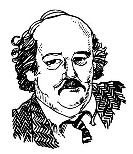(Syndicated to Kansas newspapers April 6, 2015)
 Legislators are at home on Spring Break—that’s when they have to buy their own food and drinks—until April 29, when they must put together a tax plan to finance the state budget.
Legislators are at home on Spring Break—that’s when they have to buy their own food and drinks—until April 29, when they must put together a tax plan to finance the state budget.
And this year, they’ll face for the first time the real effect of tax policies adopted in 2012 and 2013 that sharply reduced state income tax receipts. Last year, and the year before, there were general fund ending balances that could be tapped or what around the Statehouse is generally called the “Bank of KDOT”—the Kansas Department of Transportation funds; those are now running low.
It’s the real face-off. There is little left in the cupboard, state spending has been cut about as far as most legislators are willing to go, and it’s now up to deciding what taxes to raise.
Or, to just reduce spending to the level that local units of government have to pick up the costs of programs they haven’t had to shoulder in the past. That shifting of responsibilities for programs and their cost to cities and counties is what they call “local control” at the Statehouse, a good thing because it sounds nice, and saves the state money.
But…it all comes down to taxes…and who levies and pays them.
It’s that simple.
Legislators, being grown-ups, of course aren’t much interested in making their friends or campaign supporters pay higher taxes. That’s not hard to understand. And, if the state just reduces support for social programs and such, well, the local units of government are going to have to decide whether to continue them—with local property tax dollars.
So, legislators are facing the problem, and rather than increasing taxes, they might just tap folks who aren’t paying taxes now.
That’s where it becomes interesting.
Put back the sales tax on residential utilities? It would hit everyone who doesn’t sleep in the park or in their cars. But, it can be jiggled so that something less than the full 6.15 percent tax is levied.
The jiggling? It’s utility companies doing the billing and can be done easily rather than having every cash register in the state reprogrammed if there was a general sales tax rate change. It might mean the utilities will have to buy protective clothing for meter-readers, though.
Put back the sales tax on agricultural machinery and equipment? Might look good in cities, but not where properties are described by how many acres go along with the house.
Remove the dozens of sales tax exemptions for purchases by charitable and community services? They have been added, a handful a year, by legislators who took pride and probably gained support from voters for exempting their local nonprofit or community service organizations. Picking them off one-by-one would be politically impossible for anyone seeking another term in the Legislature, so practically if one organization loses its sales tax exemption, they all would.
Then there are the broad “consumption” taxes, a favorite of Gov. Sam Brownback who maintains—accurately—that Kansans are paying less in income taxes and that means they have more money in their pockets and presumably are buying—that’s consuming—something with that money.
But “consumption” is tricky. It sounds, well, almost like frivolous, or wasteful…
Do you raise taxes on bass boats bigger than yours? Or suits and dresses with minimal amounts of polyester in the fabric? Or cars that have more than four cylinders and don’t plug in?
Lawmakers aren’t reaching that far, but once the complicated budget that few really understand gets settled, it’s down to taxes.
And, you have to hope lawmakers are muscling-up on Spring Break, because the heavy lifting hasn’t started yet…
